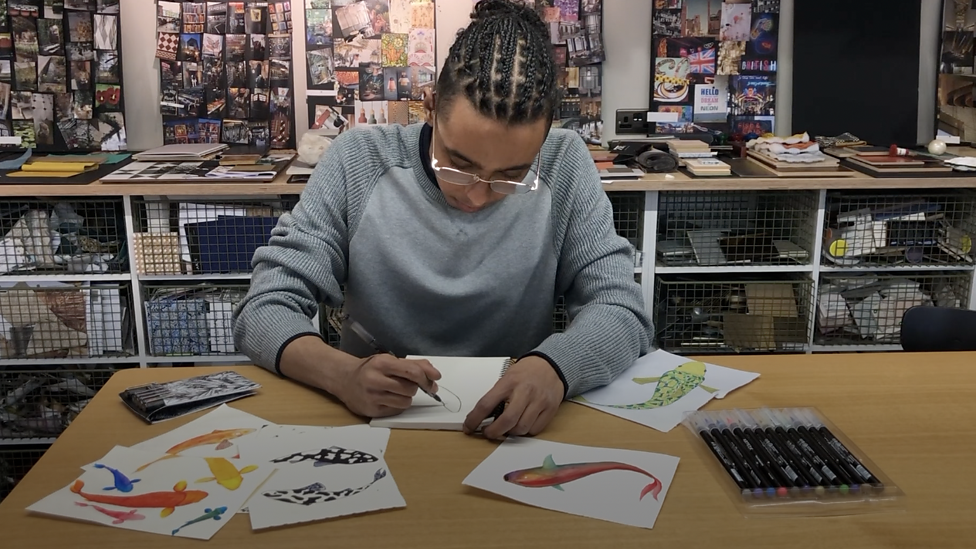Disabled-friendly clothing created for fashion's 'forgotten audience'
- Published
The special garments use magnets and hooks instead of zips and buttons
The designers of a disability-friendly clothes line have said it will help fashion's "forgotten audience".
Rebecca and Melissa Everett's range uses magnets and hooks instead of zips and buttons to make dressing easier.
The Manchester students, 22, created the collection with Caron McLuckie, whose son uses a wheelchair and could not "dress like everyone else his age".
The sisters, who hope to pitch the line to retailers, said the aim was to make "everybody feel good and confident".
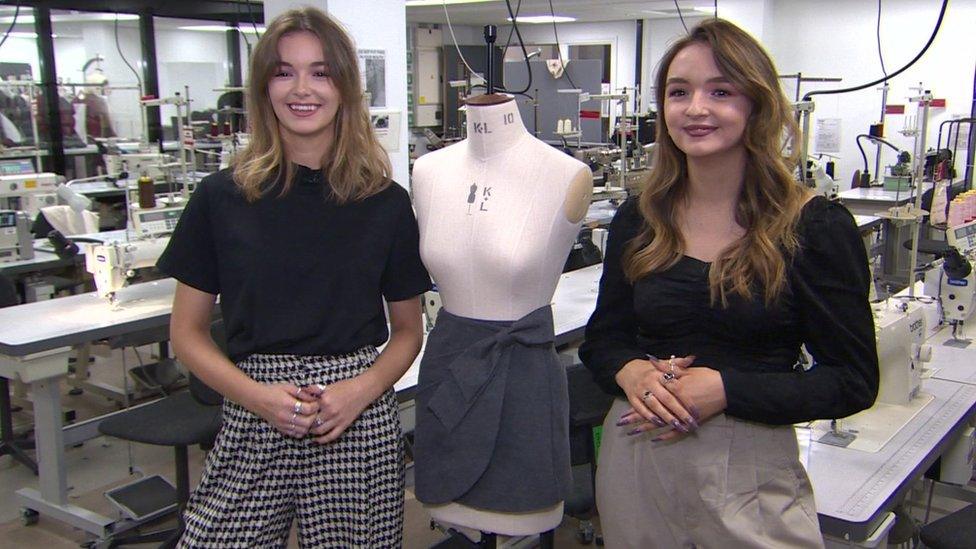
Rebecca and Melissa Everett worked with Caron McLuckie on the designs
Ms McLuckie said she approached Manchester Metropolitan University because her 17-year-old son Emile, who suffered a spinal cord stroke at 14, was struggling to find clothing.
She said she had tried to adapt clothing herself, having not been able to get anything suitable on the high street.
"The tops are not long enough or wide enough, the trousers are not high enough - the clothes that are available just don't fit," she said.
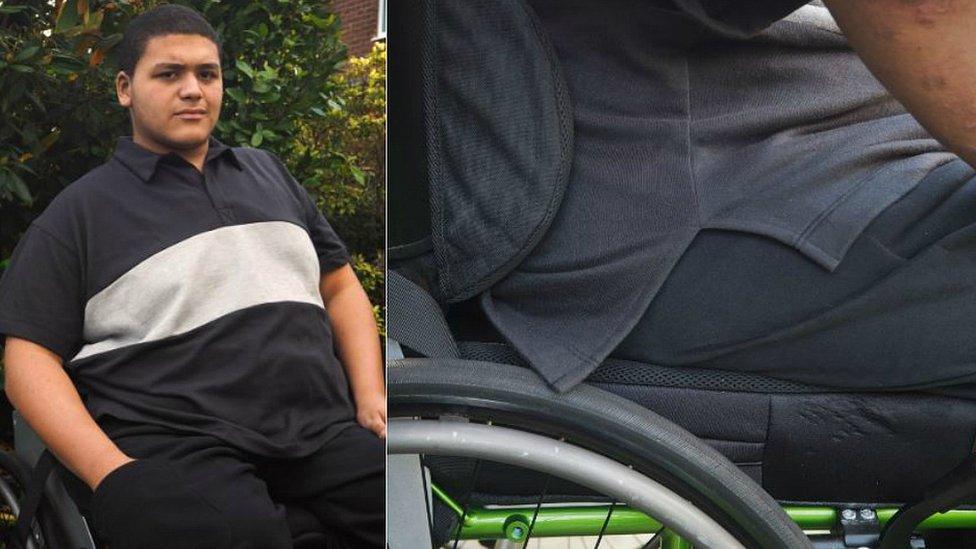
The range was inspired by Emile, who struggled to "dress like everyone else his age"
As a result, she and the MA Fashion Business students set about working on garments in partnership with the Stroke Association.
Rebecca said designing the items helped them understand "the struggles that some of these people can have finding clothes or even... dress independently".
"Fashionable adaptive garments should be available on the high street at an affordable price to meet the high demands of a large but forgotten audience," she said.
Alongside changes to how the clothes are fastened, the designs also feature wider fittings, wider cuffs and diagonal trouser openings to help catheter users.
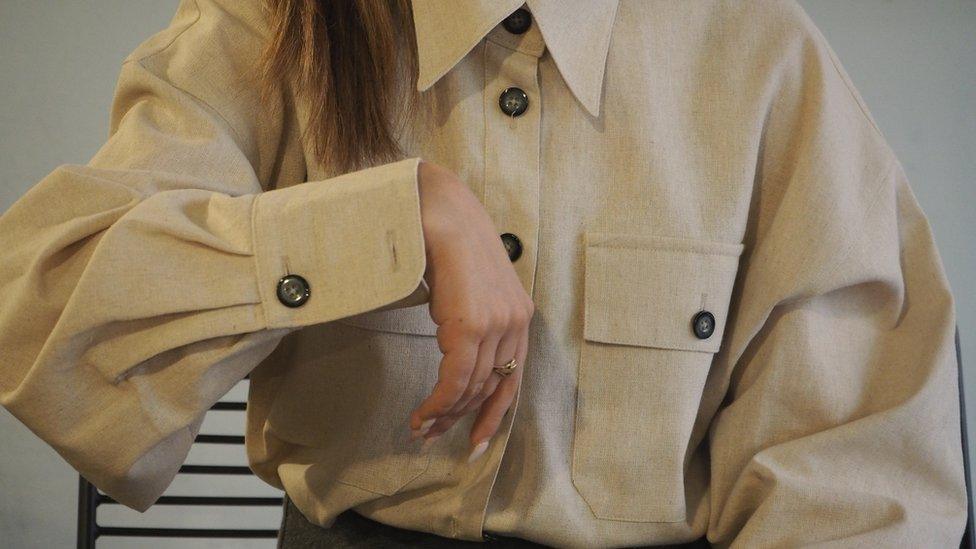
Some of the clothes have wider cuffs and longer shirts to suit the needs of wearers
Rebecca said they now intend to pitch their range to fashion retailers.
"When you look at the amount of clothing being mass produced on the high street, it is hard to believe that there is still a whole demographic of people that are not being considered," she said.
"Fashionable adaptive garments should be available on the high street at an affordable price to meet the high demands of a large but forgotten audience."
Ms McLuckie said the idea was "really exciting".
"It's taken a couple of years to get to this point... but the next step is to put a capsule wardrobe together and sell them online."
- Published22 November 2019
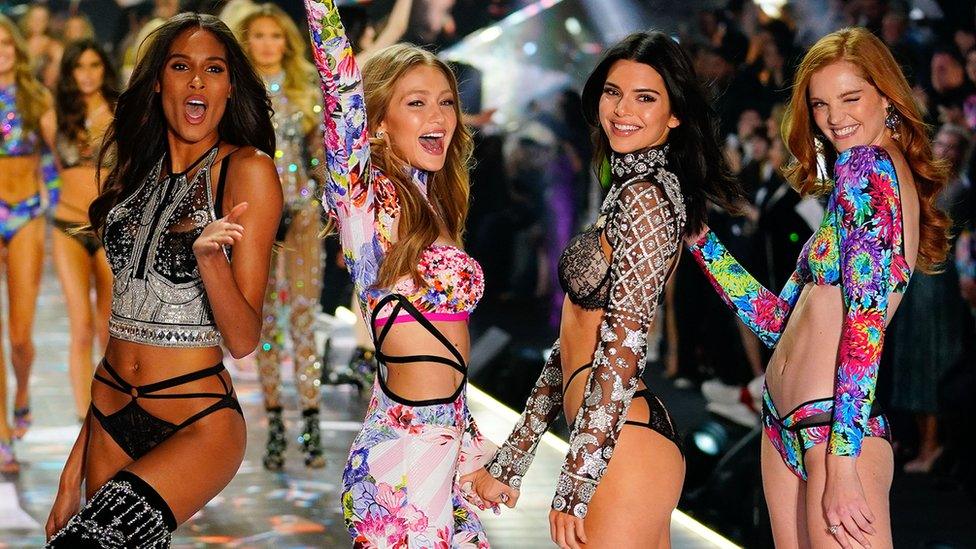
- Attribution
- Published21 November 2019
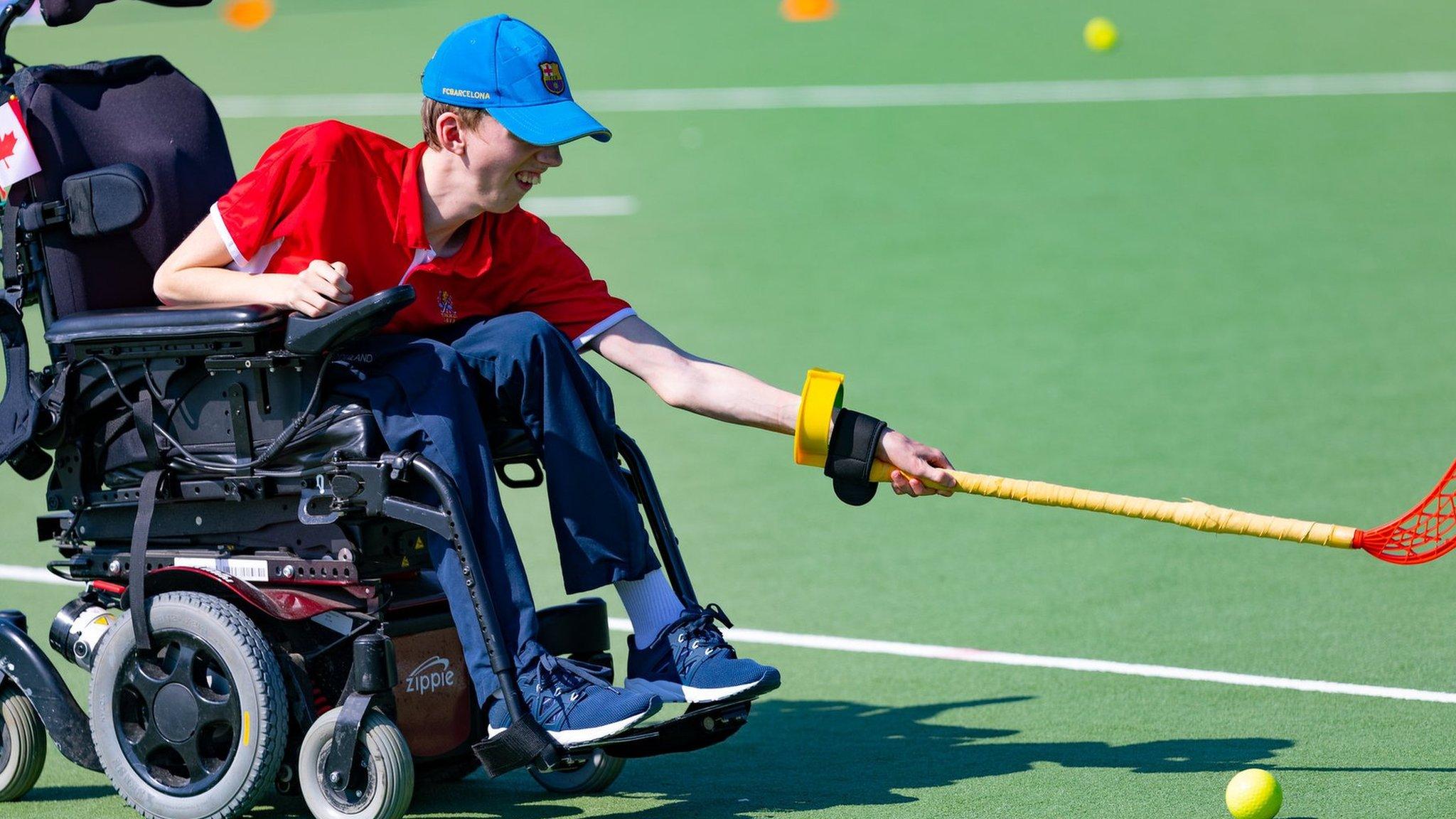
- Published1 November 2019
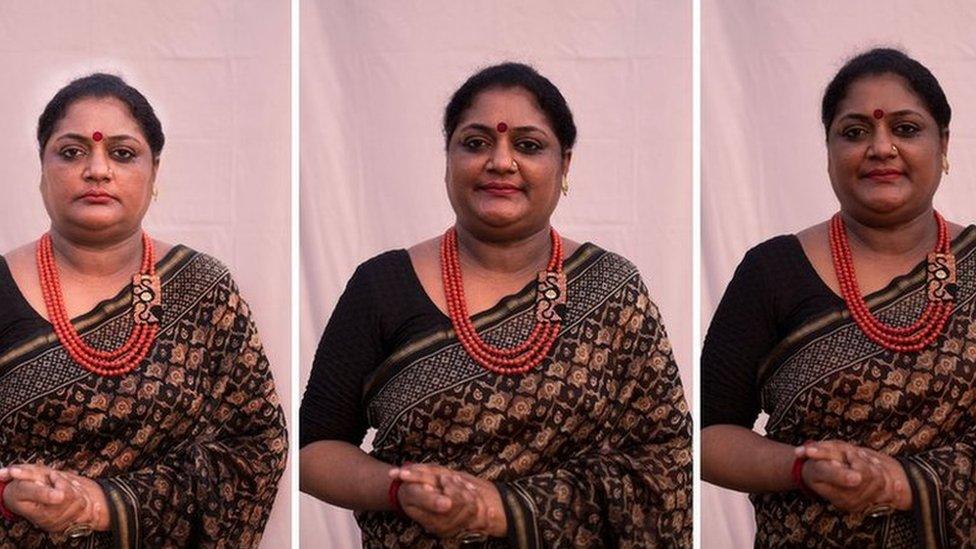
- Published10 October 2019
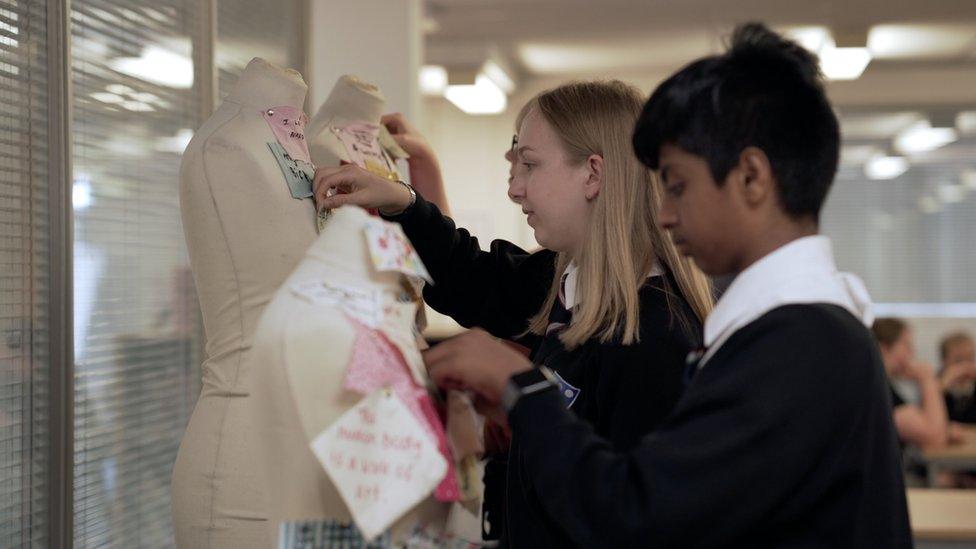
- Published16 May 2019
